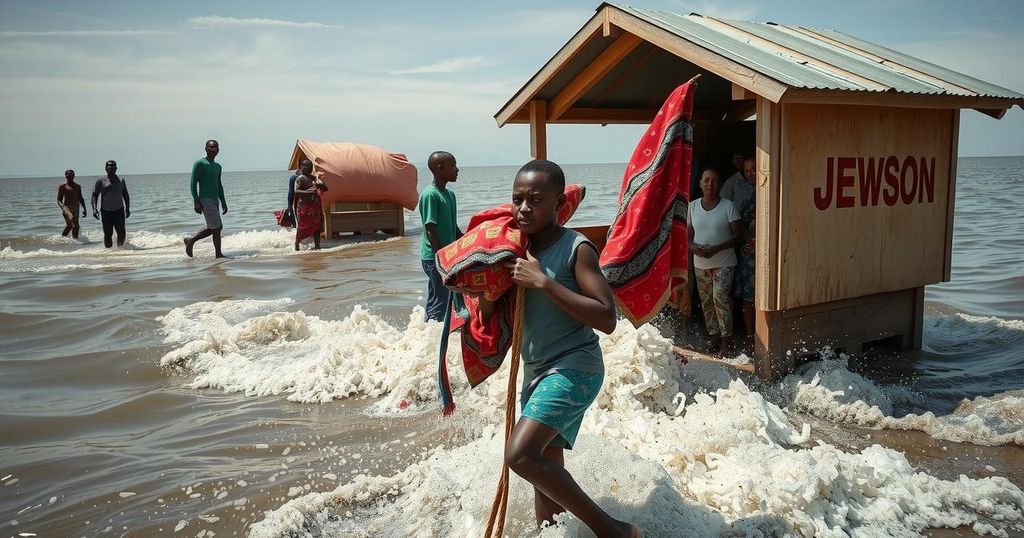Malawi Faces Refugee Influx Amid Mozambique’s Post-Election Violence

Malawi has welcomed approximately 13,000 refugees escaping violence in Mozambique following contentious elections. The influx has strained local resources, prompting humanitarian responses. Local and international organizations are mobilizing to assist both refugees and host communities amid these challenges.
In recent weeks, Malawi has experienced an influx of approximately 13,000 refugees fleeing post-election violence in Mozambique. The unrest follows the October elections, where the ruling Frelimo party was declared the winner, leading to protests and violent retaliations against individuals perceived as wealthy, including shop owners like Manase Madia. Madia, who managed to escape with his family after receiving threats, shared the distressing experiences of many who have fled, with reports indicating that some are still hiding in the bush. This crisis has prompted the Malawian government and various humanitarian organizations to respond by establishing temporary shelters and providing immediate support for the displaced individuals.
The backdrop to this humanitarian crisis is the political turmoil in Mozambique following the elections that took place on October 11, which resulted in violent demonstrations against the ruling party’s victory. The unrest which initially targeted political figures has since spiraled into broader acts of criminality, infringing upon the safety of ordinary citizens. Malawi, previously a refuge for Mozambicans fleeing the civil war in the 1980s and 1990s, is now faced with a similar situation, where the stability of local resources and community wellbeing is being tested.
The ongoing influx of refugees from Mozambique into Malawi due to political violence demonstrates the profound impact of conflict on civilian lives in southern Africa. Local authorities, humanitarian agencies, and community members are rallying to provide needed assistance. However, the situation also highlights the vital need for sustained international support to address both the immediate and longer-term needs of the displaced populations and the host communities.
Original Source: www.theguardian.com







